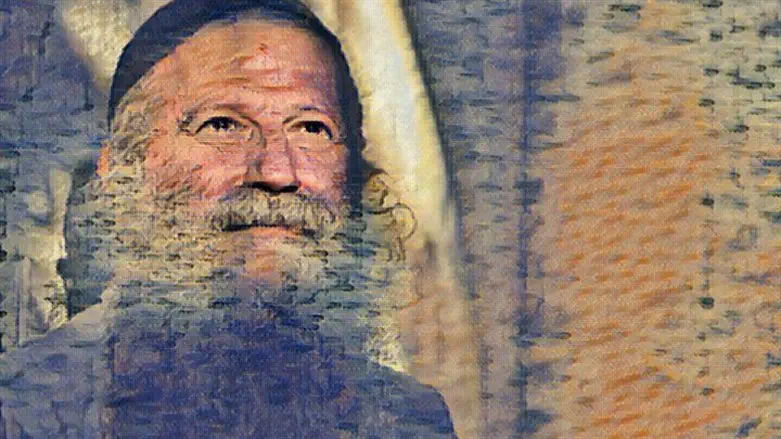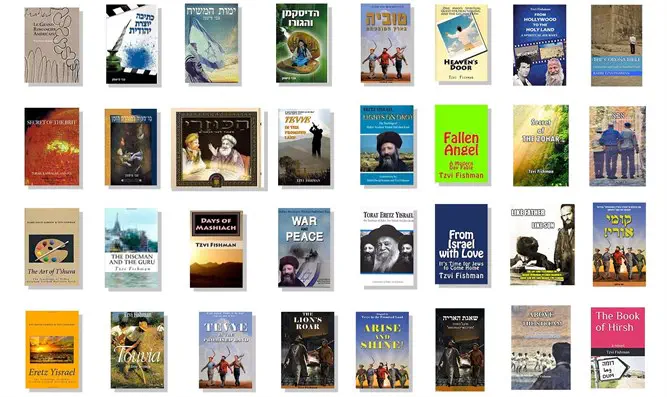
In Part One of this series of essays on Israel’s Redemption we learned that while the current war in Gaza is in many ways a setback for the nation, it will eventually come to light that it is also the springboard for vital change and continued growth, especially in connecting us to the deeper, spiritual roots of Zionism.
In his book “Step by Step,” Rabbi Chaim Druckman explains that this transformation is necessary because Zionism until now was dominated by its secular and physical aspects. The nation’s retreat from Zionism, termed “Post Zionism” when governments abandoned previous Zionist foundations to the point of relinquishing large sections of our Land to foreign control, came in reaction to the watered-down version of Zionism which they once championed, a version of restricted ideals disconnected from the spiritual roots of the Am Yisrael. When this ineffective and soulless Zionism no longer satisfies the needs of the nation, people at first look to foreign pastures and alien and destructive ideologies to fill the void.
Thus it is precisely a thirst for a greater Zionism with more expansive ideals that triggers the retreat and ideological malaise which has gripped secular Israel for the past few decades. Thus the national crisis brought about by brutal Hamas attack on Simchat Torah and the threats on the country from all sides comes as the awakening call to end the nation’s downslide and to put us back on a healthier course, bringing unity to a divided nation and a yearning for a deeper connection to Torah.
Rabbi Druckman writes: “We thus see that the downward trend, disintegration, and disassociation from the values of Zionism attest to an internal thirst for a more profound set of values than has existed until now. The apparent downfall tells us to anticipate a great spiritual rise. ‘If I had not fallen, I would not have risen.’ The downfall will lead us into an era of tremendous revival.”
The Mishna teaches that in the time of the footsteps of Mashiach “insolence will increase… the government will turn to heresy and there will be no rebuke” (Sotah 9:15).
The famous Torah commentator, Rabbi Yitzhak Abarbanel, explains this as follows: “Mankind will turn away from faith and belief and will reject all such ideas, and thusly they will find it easier to accept the true faith than before. It is therefore G-d’s wisdom that before the coming of Mashiach and the revelation of faith in G-d that the government will become heretic and will refuse to accept rebuke from their wise men. In this way, when Mashiach the king arrives all the nations will be led in a pure language to cry out in the Name of G-d and to serve Him in unison” (Yeshuot Meshicho, Vol. 2, First Commentary, 5).
Rabbi Druckman clarifies: “A person who believes in a misguided faith will find it difficult to change over to the true one. Although his faith is twisted and distorted it can still prevent him from accepting the truth. In contrast it is easier for a person with no faith to accept a true faith. Therefore Divine guidance sets up an intermediate stage of a widespread lack of faith before full revelation comes to pave the way for accepting true belief. The same holds true for Redemption. Before we can begin to understand the depths of our nationalistic values and the sanctity of Eretz Yisrael, there will be a phenomenon of disintegration and rejecting previous small-minded concepts. Before we receive the Zionist ‘soul’ there will be a retreat from classic Zionism, the Zionist ‘body.’ This lack is the foundation for establishing the new when perfection will be revealed. In order to accept the great concepts of Zionism it will first be necessary to affirm that Zionism without faith and without Torah cannot continue” (Step by Step, Ch.10, pg.127).
Rabbi Druckman illustrates this understanding with a few observations gleaned from the Israeli media.
In one article, a writer speculates about the very first Rashi on the Torah which explains that because Hashem created the world He could give Eretz Yisrael to whomever He pleased in order to counter any argument from the other nations should they contend that the Land of Israel belongs to them. “It is ridiculous to think that other nations will be convinced by this theological claim. They are not the ones who must be taught about the Creator and about Israel’s right to the Land. Rather we must convince our own people to avoid appearing in our own eyes as armed robbers. Someone who does not believe in Bereshit cannot believe in Hashem’s oath to Avraham, and whoever does not believe in the promise of the Land to Avraham is indeed an armed bandit who robs the land from its owners – not only in the eyes of the nations but we see ourselves as bandits” (Torah Insight, “Maariv,” 1979).
Rabbi Druckman cites another article written by a leftist journalist in the newspaper “Al HaMishmar” who wonders why so many children of the secular kibbutz system grew up to abandon their kibbutzim and leave the Land of Israel searching for a more peaceful and material existence – in contrast to the young people who grew up in religious kibbutzim. He attributes the cause to “the superficial Jewish-nationalistic-Zionist education we give our children. Our emotional, historic, religious connection is completely ignored. Having no roots it is no wonder they question our right to possess the Land, and it is no wonder they decide to seek out countries where they can enjoy a life of material pleasures without the demands and conflicts of Israeli life.”
In his own time, Rabbi Kook addresses this crisis of Jewish identity, noting that it is not the first time in our history that a retreat from our foundations has occurred. “We might expect this to spark a feeling of bitterness and despair,” he writes. “However, we are not afraid. We do not lose hope after every setback. We are convinced that “the Holy One of Israel will not lie and will not change His mind (Shmuel, 1, 15:29). We trust that a light of salvation will shine forth from the gloom and darkness." In illustration, Rabbi Kook cites the period of the Judges which was replete with periods of darkness. Nonetheless, soon afterward appeared an era of great illumination with the Prophet Shmuel, Kings David and Shlomo, the building of the Temple and Kingdom, and the flourishing of Torah, wisdom, prophecy, Divine Inspiration, a strong government, righteous laws and justice. “The spirit of G-d returned, clouds disappeared, and the sun of righteousness shone forth with its rays of brilliance.” (Ma’amarei HaRe’iyah, pg.451).
Rabbi Kook teaches that a person should never despair when Am Yisrael seems to have drifted far from its spiritual sources. Every Jew, no matter how much he denies any connection to Torah, is eternally connected to the holy soul of the Jewish nation, even if he is unaware that this is the core of his being. This holy spark cannot be extinguished and when the time is right, the ancestral DNA which we inherit from our Forefathers will burst into a towering flame (see the book “Orot,” Ch.1:8).
The Prophet Yishayahu declares: “Will I start a birth and not bring it to pass, says the L-rd?” (Yishayahu 66:9). Will I start something that I cannot finish, Rashi explains. Hashem has promised to redeem His People and nothing can stand in the way.
“A woman’s birthing pains are very painful,” Rabbi Druckman explains. “The same holds true for the birth pangs of Mashiach. The birth pains of Redemption are very intense, but just as a woman gives birth to a child, so too the pains of the Israel’s physical development and spiritual maturity leading up to Mashiach are what give birth to the Jewish People as its body and soul merge in total completion.”
Books by Tsvi Fishnan:
